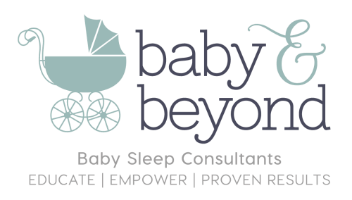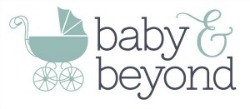First weeks with a New-born

“It’s over 20 years now since I gave birth for the first time. After the arrival of my newborn I remember looking in the bathroom mirror at the delivery suite and feeling quite overwhelmed and alarmed at how very pregnant I still looked”
Mum
After 9 months of pregnancy your body getting “back to normal” isn’t something that’s going to happen in days or weeks, it’s important to be kind to yourself and have realistic expectations. Your body has a lot of work to do in the postpartum weeks: recovering from the hard work of birth, healing any tears or bruised tissue and getting milk production underway. It will take time for your body to return to its non-pregnant state.
A 2012 University of Salford study by Dr Julie Wray, interviewed women during their first year post birth and concluded that, “women need a year to recover both physically and emotionally after child birth. Relationships, personal self-worth, finances and health are all put through the mill in the first 12 months.”
So firstly the uterus: this amazing organ has stretched many times its original size nurturing your developing baby. It takes 6 to 8 weeks for your uterus to return to its normal size and this is caused by hormonal changes that cause it to contract. Breastfeeding your new born will stimulate your uterus to contract further. After pains can be painful for a few days and postnatal bleeding can last 4-6 weeks after delivery. I recall going through more pads than expected and sending hubby on a pad purchasing supermarket mission – which he found to be a confusing experience.
Giving birth is an emotional and tiring event and your hormones change dramatically in the first few days. It’s around this time you may experience the ‘baby blues’ caused by lack of sleep and your hormones as there is a big drop in estrogen and progesterone levels. Thyroid levels can also drop, which leads to fatigue. I know it’s easier said than done but put your feet up when you can, delegate household jobs and accept offers of help. With my first two I didn’t heed this advice and did far too much! I tell my, now adult daughter Sarah, who was 2 years old when her baby sister arrived that I was out with them both 5 days later. I went to a playgroup for an end of the year Christmas Party and I was worried Sarah would majorly ‘miss out ’on the experience if she didn’t go – mummy guilt – sigh! Somehow I got myself and the two of them there and home again – what was I thinking!! By baby # 4, I deliberately stayed in my PJ’s for 2 weeks, as I realized that sent a clear message to family and visitors, I needed rest and things aren’t expected to be back to normal yet. The new normal that is, when you have a new born and 3 other children.
Up to 80 % of women experience the baby blues after giving birth, this starts anywhere from 2 to 10 days after the birth of your baby and usually lasts for 2 to 3 days. You may cry easily, feel anxious and irritable and your mood can go up and down. Feeling teary can be worse if your labour was difficult, you are very tired or you have other worries, such as problems breastfeeding. Usually the baby blues will pass and it helps not to put too much pressure on yourself, talk about how you feel and ask for practical help from your partner, family and friends. I remember feeling extremely anxious about leaving the birthing unit having delivered # 4, knowing I was going home to 3 other children and the summer school holidays.
In around 10-20% of mum’s these feelings can worsen or persist as anxiety and depression and many factors can contribute to that. There is lots of help available, so if you feel things just aren’t right, talk to your GP or LMC so you can be assessed and supported to recover.
Your breasts: Colostrum is produced late pregnancy, and for the first 3-4 days until your milk ‘comes in’ with a thick creamy/yellow appearance, it is a perfect first nourishment for your new born. It lines baby’s tummy and boosts their immune system. Colostrum is produced in small amounts of half to a tablespoon each feed since a new born’s tummy is tiny at first, the size of a marble. Within a few days it expands to the size of a golf ball and can hold around 50 mls each feed. Transitional milk is the name for the mixture of colostrum and mature milk the breasts produce in the next few weeks until supply is mature, this mature milk has a thinner whiter appearance.
Breastfeeding tips: While it is a natural process, most mum’s still need some guidance and support along the way with latching and positioning baby to the breast, this can be from your LMC or staff at your birthing unit. There are breastfeeding resources and Apps from La Leche League NZ, BreastFedNZ or a drop-in clinic run by Lactation Consultants in your area. In some situations, a new born may need some formula supplementation until breastfeeding issues are resolved and not all women physically can or wish to breastfeed. This happened to my mother as I arrived prematurely by Caesarean section, my mum was 45 years old when I was born. While she tried her best to establish breast feeding, she also had a toddler at home and had recently lost both her parents…. my poor mum!! I did need ongoing formula supplementation and started solids pretty early too by today’s guidelines – suffice to say I have turned out pretty well despite all this!
Baby
New born’s feed 8- 12 times a day and it is common for their second night to be a feeding marathon as baby is really building your milk supply. Having lots of time cuddling your baby and skin to skin contact helps your breastfeeding bond, develop milk supply and is very calming for baby. This is because the hormone oxytocin is released during these bonding times which has the benefit of mum feeling calmer and responsive to baby, this promotes let down or a little surge of milk being released.
Wee and poos: It may be 24 hours before a new born’s first wet nappy and they pass meconium which is a green bowel motion. By day 2-3 wet meconium nappies are increasing as your milk comes in and baby is drinking more. Bowel motions transition from greeny brown to more yellow and creamy – and lots of them!

Weight gain: An average weight gain of 110-200 gms a week is a guide, this is recorded in your baby’s Well Child Book. A baby is born with excess cellular fluid on board and this helps sustain them over those first few days as milk supply builds. It is common for a new born to lose 7-10 % of their birth weight and to have regained this loss by 10 -14 days. For weight loss greater than this or delays in regaining birth weight your LMC will be looking at causes and putting a plan in place to get things back on track.
Settling and Sleep: Let’s hope your new born has read the text book that says they will sleep 16 out of 24 hours, spread over 6-8 naps, I don’t think mine read that one! It is typical for new born’s to sleep like this if they are getting enough milk, being hungry and over tired can lead to a lot of fussing and crying so try to have them back down to nap within 1-1.5 hours of waking up. By 3-4 weeks a baby is becoming more alert and aware and will start to enjoy an awake/playtime. Signs of a tired baby are yawning, a blank stare or blinking which can progress to fussing, jerky movements and crying, their brain is immature so they easily become over stimulated. A new born will spend 50% of their sleep time in REM sleep (also referred to as active sleep), where the baby can twitch or jerk arms and legs, you may see their eyes move under a closed eyelid. This progresses to deep non-REM sleep (also referred to as quiet sleep) twitching and other movements stop and the baby falls into sleep that becomes progressively deeper. This cycle of active and quiet sleep takes about 45 minutes and it is normal for a young baby to need some support to resettle again if they fuss or wake while in a light sleep phase. Nurturing good sleep patterns will set you on the right path to great sleep hygiene.
Tips to soothe a light sleeper or crying baby are using a wrap or swaddle and Shusher or white noise as this triggers their calming reflex and mimics the secure but noisy womb environment. Rhythmic patting in the bassinet, cuddling your baby in your arms and swaying or a walk in the pram, all provide soothing movement.
Sometimes a new born will cry a lot more than you expected and this can be overwhelming for the parents. If you need support with this or to talk things through, a good friend can help or give us a call at Baby & Beyond our baby sleep consultants can help. Often there are little tips and tricks to help get through this period with a young baby.
To keep your baby safe while sleeping, make sure:
- Back sleeping is best as this keeps their airways clear
- In their own bassinet, cot or other baby bed e.g. pēpi-pod
- They are put back in their own bed after feeding so you don’t fall asleep holding them
- The temperature in the room is kept around 18-20°C, not too hot or too cold
Baby’s bed is safe when:
- It has a firm and flat mattress with no gaps between the bassinet/cot and the mattress, so there is no chance they can slip in to the gaps or get wedged
- The gaps between the bars of baby’s cot are between 50 mm and 95 mm – try to get one with the gaps closer to 50 mm if you can
- Practice safe sleeping, co-sleeping must be done safely.
- There is nothing in the bed that might cover your baby’s face, lift their head or choke them – no pillows, toys, loose bedding, bumper pads.
- Their feet are close to the end of the bed so they can’t burrow under the blankets
These early weeks really do pass fast often in a blur, so allow yourself to slow down and enjoy this time with your baby. I am one of those people who love the new born phase and would dress mine in cute long gowns for as long as possible, even my strapping 10-pound son got the white nightie treatment.
Tough as these weeks can be, it won’t be long and you’ll be rewarded with first smiles and coos around 6 weeks and your baby will be leaving this new born phase behind. Congratulations and enjoy your new little baby.
Compiled by Janferie Dewar – Baby & Beyond Sleep Consultant, Registered Nurse and Breastfeeding Educator


